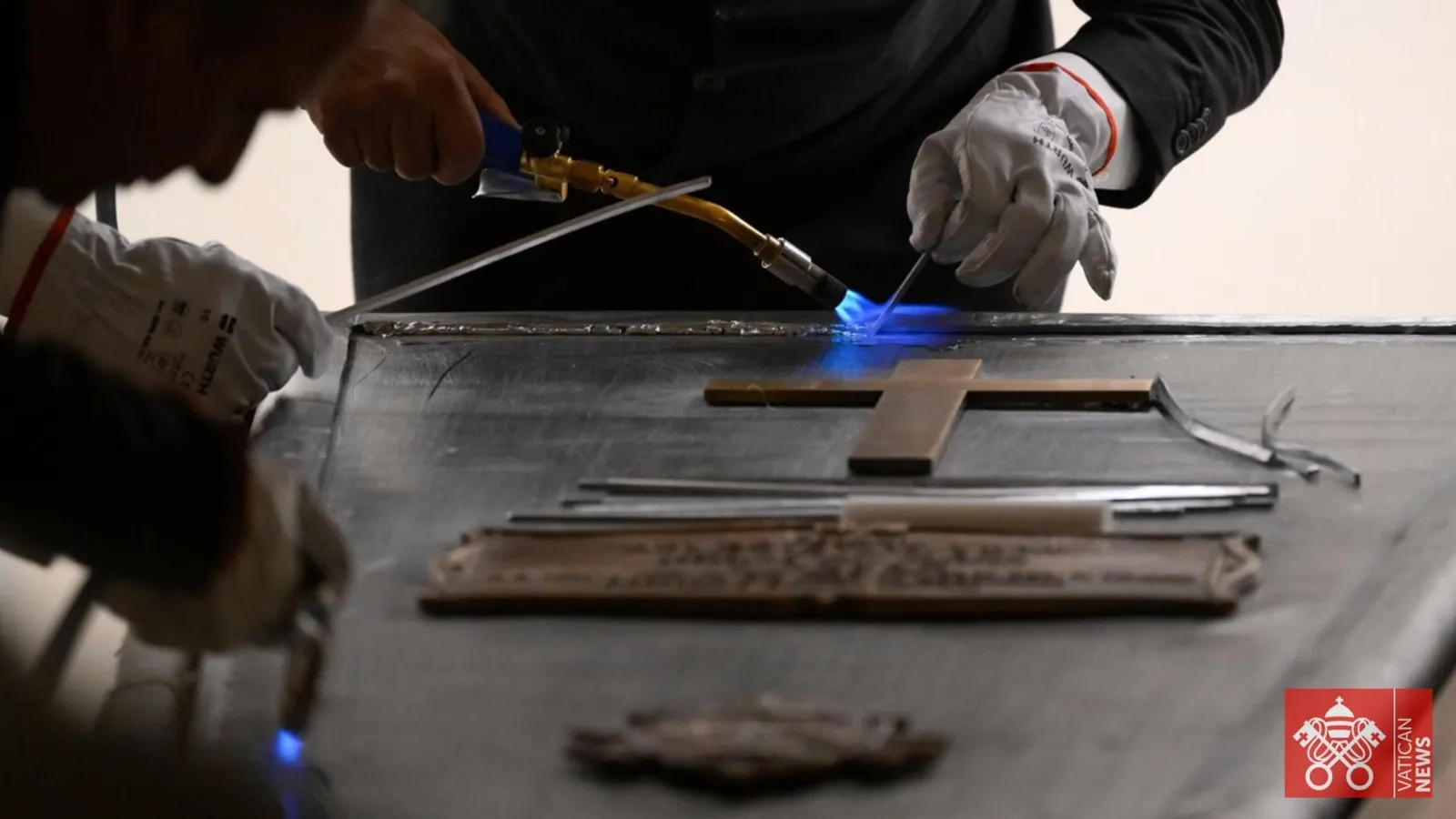
Vatican City, Feb 12, 2020 / 12:49 pm (CNA).- During his General Audience on Wednesday, Pope Francis discussed the second beatitude, “Blessed are those who mourn for they shall be comforted,” emphasizing the value of compunction.
Mourning “is an attitude that became central to Christian spirituality,” the pope said Feb. 12 at the Vatican’s Paul VI Hall.
The desert fathers calld this “an inner pain that opens up to a relationship with the Lord and with one’s neighbour; a renewed relationship with the Lord and with one’s neighbour,” he said.
Mourning can have two aspects, Pope Francis said: “for death or for the suffering of someone” and “tears shed over sin – for our own sin, when the heart bleeds for the pain of having offended God and one’s neighbour.”
He said that it is “a question of loving the other in such a way that we are bound to him or her until we share his or her pain … it is important that others make a breach in our hearts.”
“I have often spoken about the gift of tears, and how precious it is,” he said.
“Can one love in a cold way? Can one love by function, by duty? Certainly not. There are the afflicted to console, but sometimes there are also the consoled to afflict, to awaken, who have a heart of stone and have forgotten how to weep. It is also necessary to reawaken people who do not know how to be moved by the pain of others.”
While bitter, mourning can “open one’s eyes to life and to the sacred and irreplaceable value of each person, and at that moment one realizes how short time is,” the pope reflected.
Turning to weeping over sin, Francis said that it is not anger at having made a mistake, which he called pride.
“Instead there are those who mourn the evil done, the good omitted, the betrayal of the relationship with God. This is mourning for not having loved, which springs from having the life of others at heart. Here one weeps because one does not correspond to the Lord Who loves us so much, and we are saddened by the thought of the good not done; this is the meaning of sin. They say, ‘I have wounded the one I love’, and it pains them to tears. God be blessed if these tears come!”
He said it is “difficult but vital” to face one’s own errors.
“Let us think of the weeping of Saint Peter, which leads him to a new and far truer love: they are tears which purify, which renew. Peter looked to Jesus and wept: his heart was renewed.”
Pope Francis contrasted St. Peter with Judas, “who did not accept that he had made a mistake and, poor man, took his own life.”
“Understanding sin is a gift from God, it is the work of the Holy Spirit. We, by ourselves, are unable to understand sin. It is a grace we must ask for … This is a very great gift and after we have understood this, there comes the grief of repentance.”
The pope referred to St. Ephrem the Syrian’s saying that “a face washed with tears is unspeakably beautiful.”
“The beauty of penitence, the beauty of tears, the beauty of contrition,” the pope exclaimed.
“Christian life finds its best expression in mercy. Wise and blessed is he who welcomes the pain linked to love, because he will receive the consolation of the Holy Spirit which God always forgives, even the worst sins, always is the tenderness of God Who forgives and corrects.”
He added that “God always forgives: let us never forget this.. The problem is in us, that we tire of asking for forgiveness, we become wrapped up in ourselves and we do not ask for forgiveness. This is the problem; but He is there to forgive.”
If you value the news and views Catholic World Report provides, please consider donating to support our efforts. Your contribution will help us continue to make CWR available to all readers worldwide for free, without a subscription. Thank you for your generosity!
Click here for more information on donating to CWR. Click here to sign up for our newsletter.






He is an inspiration to the weak and the strong. Even Rock-like Peter wept, and shed holy tears.
Sin is initially known by Man by nature not grace. The fallacy in this Papal remark is obliteration of the Natural Law within, the inherent capacity to distinguish good and evil common to all. Otherwise persons untouched by grace would be free to sin without responsibility. Conscience has as its bedrock this inherent capacity. The error leads to further error because by denying the Natural Law we pervert the will from its natural inclination toward good and seek truth elsewhere. Grace is necessary to consistently choose good over evil. And for knowledge of principles necessary for salvation that supersede human nature. Yes the Pontiff does keep many of us in tears. Tears of anguish.